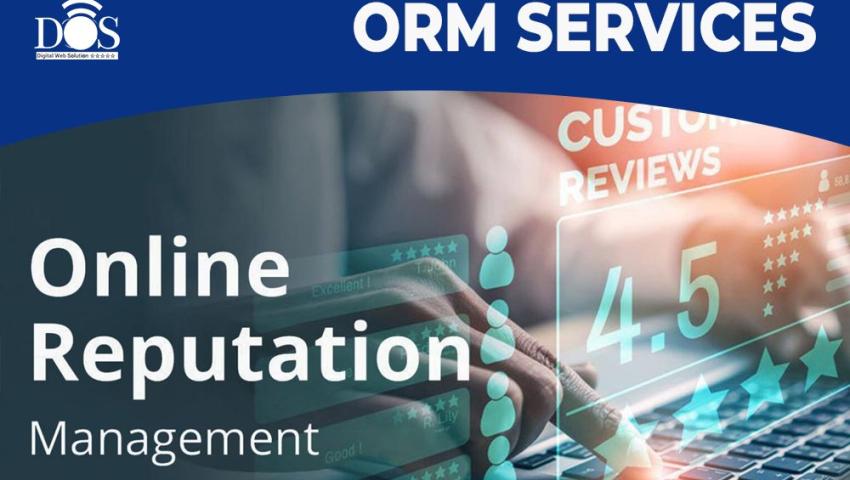
ORM Services: Protect and Enhance Your Brand Reputation
ORM (Online Reputation Management) services help businesses build, protect, and enhance their brand image. By monitoring online reviews, managing negative feedback, and promoting positive content, ORM ensures a strong digital presence, improves credibility, and boosts customer trust for long-term success.
Online Reputation Management (ORM): Strengthen and Safeguard Your Brand Image
In today’s digital world, a brand’s reputation is one of its most valuable assets. Online Reputation Management (ORM) services help businesses monitor, protect, and enhance their online image by managing reviews, addressing negative feedback, and promoting positive content. A strong reputation not only builds trust and credibility but also drives customer loyalty and business growth.
What is Online Reputation Management (ORM)?
ORM is the strategic process of controlling and influencing how a brand or individual is perceived online. It involves monitoring brand mentions, responding to customer feedback, and ensuring that the most favorable and accurate information appears in search results, social media, and review platforms.
Why is ORM Essential for Businesses?
- Builds Trust & Credibility – A positive reputation boosts consumer confidence.
- Influences Purchase Decisions – Most customers check reviews before buying.
- Improves Search Engine Presence – Positive content ranks higher, pushing down negative mentions.
- Drives Sales & Customer Retention – A strong brand image attracts and retains more customers.
- Protects Against Negative Publicity – Timely reputation management prevents PR crises.
Key ORM Services & Strategies
1. Online Review Management
Monitoring and responding to reviews on platforms like Google, Yelp, Facebook, and Trustpilot is crucial. Encouraging satisfied customers to leave positive reviews helps build brand credibility.
2. Search Engine Reputation Management (SERM)
Optimizing positive articles, blogs, press releases, and social media helps push down negative search results and enhance brand perception.
3. Social Media Monitoring & Engagement
Tracking brand mentions and engaging with customers on platforms like Facebook, Instagram, LinkedIn, and Twitter helps maintain a positive brand image.
4. Crisis Management & Damage Control
Timely response strategies for negative PR, customer complaints, or online attacks help businesses control and minimize reputation damage.
5. Content Marketing & SEO
Publishing high-quality content, such as blogs, testimonials, and case studies, improves online visibility and strengthens a brand’s positive image.
6. Competitor Analysis
Monitoring competitors’ reputations helps businesses understand industry trends and stay ahead in managing their online presence.
Steps to an Effective ORM Strategy
1. Monitor Your Brand Online
Use tools like Google Alerts, SEMrush, or Brandwatch to track brand mentions, reviews, and customer feedback.
2. Engage with Customers Promptly
Responding to reviews, comments, and social media interactions professionally builds trust and enhances brand credibility.
3. Address Negative Feedback Proactively
Acknowledge and resolve complaints quickly to demonstrate transparency and a commitment to customer satisfaction.
4. Publish & Promote Positive Content
Creating and sharing blogs, success stories, testimonials, and media coverage strengthens a brand’s online reputation.
5. Encourage Customer Reviews
Satisfied customers should be encouraged to leave positive reviews, boosting the brand’s image and SEO rankings.
6. Secure Your Brand Identity Online
Claiming and verifying business profiles on platforms like Google My Business, Yelp, and social media ensures control over brand-related information.
Purva Kumari
Leave a comment
Your email address will not be published. Required fields are marked *


